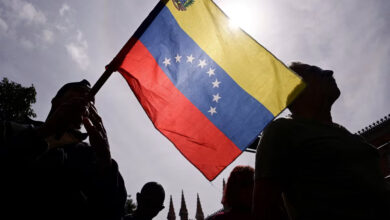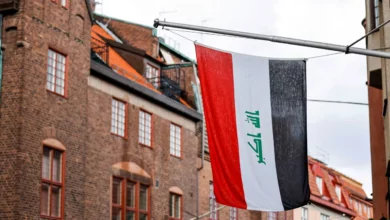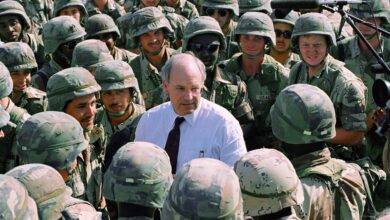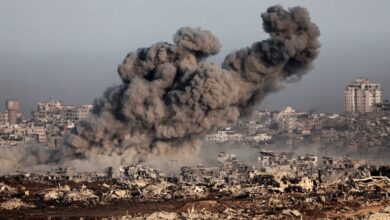
Iraqis on Wednesday defied a rash of militant attacks to vote in the country's first elections since US troops withdrew, with premier Nouri al-Maliki proclaiming "certain" victory as he cast his ballot.
Queues formed from early morning at tightly-guarded election centres despite a surge of violence targeting polling stations and campaign gatherings in the days leading up to the vote.
The stream of voters slowed later in the morning but the tempo was expected to pick up again in the afternoon before polls close at 6pm (1500 GMT).
Iraqis have a long list of grievances, from poor public services to rampant corruption and high unemployment, but the month-long campaign has centred on Maliki's bid for a third term and dramatically deteriorating security.
Maliki encouraged voters to turn out in large numbers and voiced confidence he would return to power after casting his ballot at a VIP polling centre set up in the Rasheed Hotel in Baghdad's heavily-fortified Green Zone.
"Today is a big success, and even better than the last elections, even though there is no foreign soldier on Iraqi soil," the premier said.
He called for a move away from national unity governments to ones of political majority, and confidently told journalists, "Our victory is certain, but we are waiting to see the size of our victory."
The run-up to the election, the first since US forces departed in December 2011, has seen Baghdad and other major cities swamped in posters and bunting.
Parties have staged rallies and candidates have angrily debated on television, though appeals to voters have largely been made on sectarian, ethnic or tribal grounds rather than on political and social issues.
Analysts had voiced fears that much of the electorate would stay home rather than risk being targeted by militants, who in the past two days killed nearly 90 people.
Fresh attacks which left two women dead and two other people wounded were launched soon after voting began on Wednesday.
Security officials reported more than 40 mortar attacks as well as blasts caused by sound grenades and roadside bombs at or near polling centres in northern and western Iraq.
North of Baghdad, militants seized a polling centre and, after evacuating election workers and voters, destroyed it with explosives.
But many Iraqis said they were determined to vote despite the unrest, voicing disdain for the current crop of elected officials.
'Change for my children'
"I came to vote for change for my children and my grandchildren, to change the future and the situation of the country for the better," said Abu Ashraf, a 67-year-old retired accountant who declined to give his full name.
"It is necessary to change most of the politicians because they have done nothing, and they spend years on private conflicts," the silver-haired, retired accountant said after voting in west Baghdad.
Nearby, 19-year-old headscarf-wearing university student Noor Raad said she had voted "to change the politicians, because most of them have not worked to improve the situation."
Others, however, voiced confidence in Maliki's leadership.
"If we are not coming to vote, who is going to come (to power)?" asked Umm Jabbar, or mother of Jabbar, who queued outside her polling station in the holy Shia city of Najaf from 6:00 am.
"Will the enemy come? I am voting for Maliki, because he is a thorn in the eyes of the enemy."
More than 750 people have been killed this month while militants have controlled the town of Fallujah since the beginning of the year, with unrest at its worst since a brutal sectarian conflict left tens of thousands dead in 2006 and 2007.
Parts of restive Anbar province, where Fallujah is located, will not be voting.
Maliki's critics have accused him of consolidating power and marginalising minority Sunnis, and say public services have not sufficiently improved during his eight-year rule.
The 63-year-old, who hails from Iraq's Shiite majority, contends the violence is fuelled by the civil war in neighbouring Syria and has accused Saudi Arabia and Qatar of backing insurgents.
Maliki's State of Law alliance is tipped to win the most seats in parliament but fall short of a majority, meaning he will have to court other Shiae parties, as well as Sunni and Kurdish blocs if he is to return to power.
And though Maliki faces significant criticism, analysts say a fractious and divided opposition leaves him the frontrunner for the top job.




